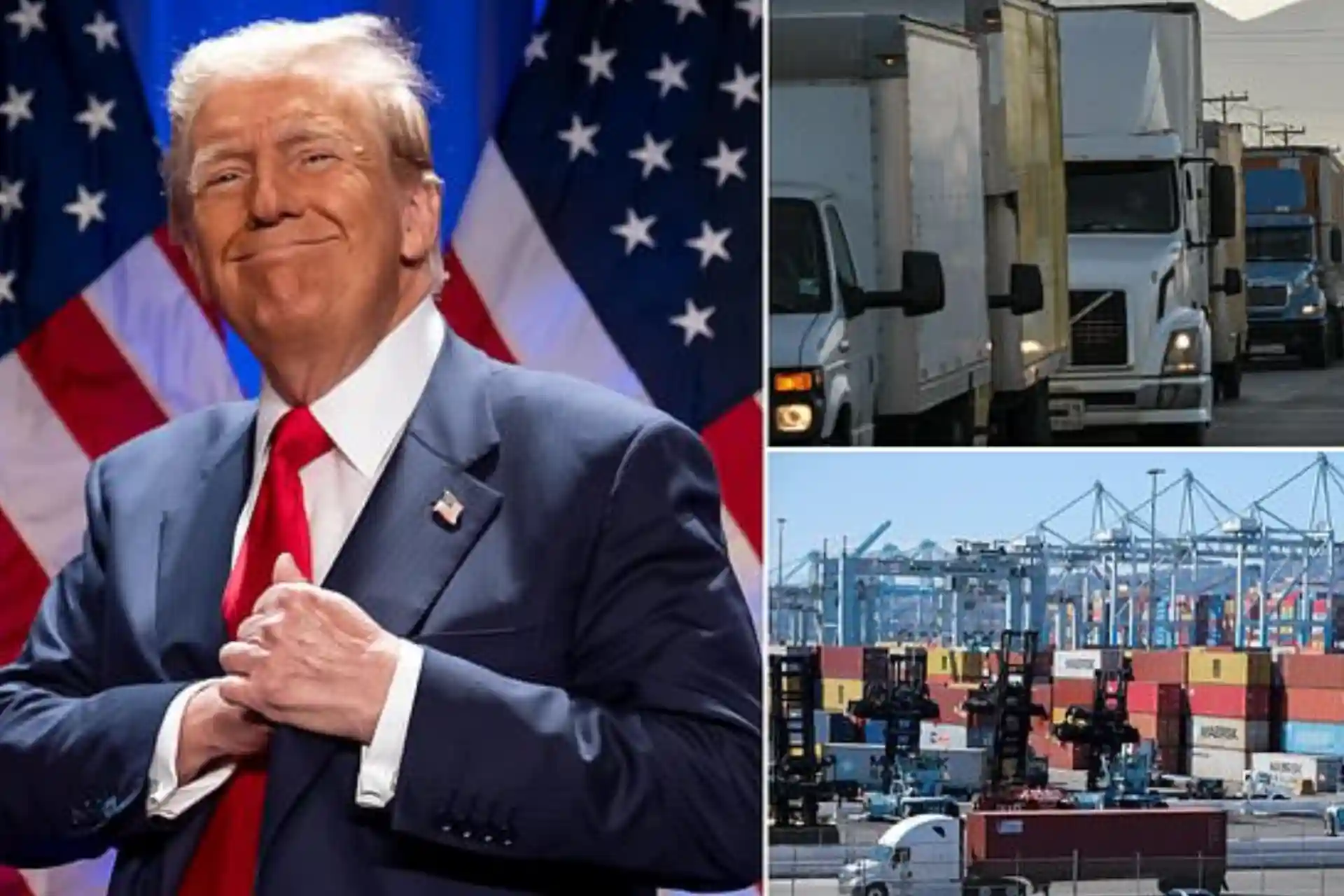03.02.2025 17:40
786
A new global trade war has begun in the world
A new global trade war has begun in the world
In the United States, President Trump has implemented a number of changes since coming to power, including encircling the country, deporting "aliens" to their own countries, establishing closed relations with neighbors or threatening to annex them, and imposing tariffs on products.
President Trump signed an executive order on Saturday, February 1, imposing a 25 percent tariff on most products imported from Canada and Mexico, the country's largest trading partners. A 10 percent tariff was imposed on goods imported from China.
The tariffs will reportedly take effect on Tuesday.
In a message on social media, Trump said he was taking these measures to stop the flow of drugs and illegal immigrants through the northern and southern borders of the United States.
In another message on Sunday morning, Trump noted that the tariffs are also aimed at eliminating the US's existing trade deficit with many foreign countries.
"THIS WILL BE A GOLDEN AGE FOR AMERICA! WILL THERE BE TROUBLES? YES, MAYBE (MAYBE NOT!)," Trump wrote. "BUT WE WILL MAKE AMERICA GREAT AGAIN AND ANY PRICE THAT MUST BE PAID WILL BE WORTH IT."
A lower 10 percent tariff will be imposed on Canadian crude oil, which could soften the impact on gasoline prices in the U.S. Midwest refineries are heavily dependent on Canadian crude.
The import taxes could raise the prices of a wide range of products, including fruits and vegetables, flat-screen TVs and car parts. The targeted countries have said they will respond to U.S. exports with their own retaliatory tariffs.
Various business groups immediately reacted to the announcement, with a trade group representing the alcohol industry saying the tariffs would hurt jobs.
The organization argues that products are unique to each country, and tariffs harm local industries.
The American Fuel & Petrochemical Manufacturers, an industry trade group, warned in a statement released Saturday that higher import prices for crude oil from Canada and Mexico, as well as other Canadian energy products, could lead to American consumers paying more for energy.
"We hope that an agreement can be reached quickly with our North American neighbors to remove crude oil, refined petroleum products, and petrochemicals from the tariff schedule before consumers feel the impact," said Chet Thompson, president and CEO of AFMP.
The response of China, Canada and Mexico
In coordinated statements on Sunday, China's Foreign Ministry and Commerce Ministry condemned the tariffs and said China would take unspecified "appropriate countermeasures." The Commerce Ministry called the tariffs a serious violation of World Trade Organization rules and said it would file a legal complaint with the WTO. The Foreign Ministry, however, said China had taken steps to help the United States combat fentanyl, which was ultimately the United States' own problem, and that the tariffs would "inevitably affect and harm future cooperation between the two sides on drug control."
Canadian Prime Minister Justin Trudeau spoke publicly on Saturday, expressing regret over the expected tariffs imposed by the United States on Canadian goods and warning American consumers about price increases.
"This election will undoubtedly hurt Canadians, but beyond that, it will have serious consequences for you, the American people," Trudeau said.
"If President Trump wants to usher in a new golden era for the United States, the best way is to work with Canada - not punish us," he added.
The Canadian government responded by announcing a 25 percent retaliatory tariff on various American products, including home appliances, clothing, wine and spirits, orange juice, peanut butter, and motorcycles.
Canada will impose tariffs on $30 billion worth of U.S. imports on Tuesday, with tariffs on another $125 billion to follow later. Officials have said that "additional measures, including non-tariff options," could be considered if the U.S. continues to impose new import costs on its northern neighbor.
Trudeau said that while less than 1% of illegal border crossings into the United States and less than 1% of fentanyl comes from Canada, the country launched a $1.3 billion program in December to further strengthen its shared border with the United States.
Mexican President Claudia Sheinbaum said on Saturday that she had directed her Economy Minister to implement a plan that includes tariffs and non-tariff measures, but did not provide further details.
In his post on X, Sheinbaum reported that the Mexican government had seized 40 tons of drugs in the past four months, and also accused U.S. arms dealers of arming Mexican drug cartels.
Sheinbaum suggested instead that Mexico and the United States form a task force, rather than resorting to retaliatory economic measures against each other. "Mexico doesn't want confrontation," he said.
How are American consumers and companies preparing for this?
Businesses and consumers in the US have already begun to make contingency plans. Trade data released earlier this week showed imports rose sharply in December, suggesting some companies were trying to stock up on goods before the tariffs took effect.
Some buyers also tried to avoid the tariffs. Personal spending on durable goods such as cars and televisions rose in December, according to data released by the Commerce Department on Friday. Mexico is a leading producer of flat-screen TVs.
Tariffs were mentioned more than 200 times in corporate earnings reports this month.
The automotive industry is expected to be particularly hard hit because it is highly integrated and relies on production in all three countries.
General Motors told financial analysts on Tuesday that it could move some of its pickup truck production out of Mexico and Canada if tariffs are imposed. But the automaker is reluctant to act while the trade situation remains uncertain.
"We are prepared to mitigate the near-term impacts," said CEO Mary Barra. "We will not spend large amounts of money without certainty."

